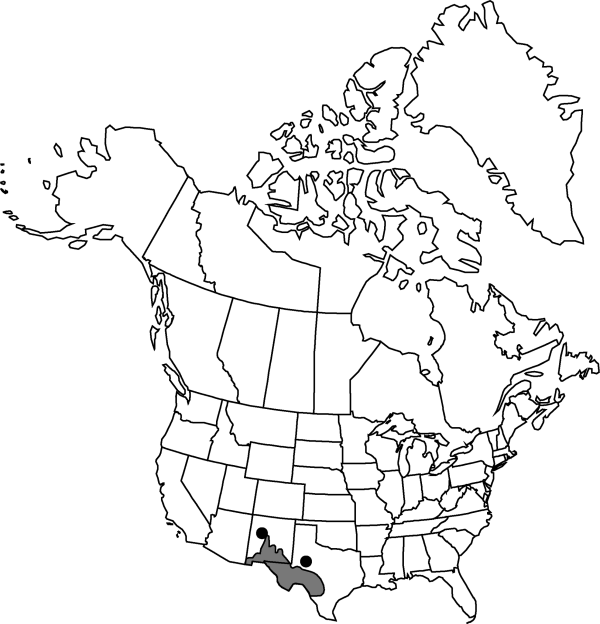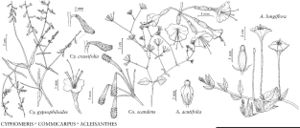Cyphomeris gypsophiloides
Contr. U.S. Natl. Herb. 13: 428. 1911.
Herbs, glabrous or sometimes minutely and sparsely pubescent with pale, curved, occasionally gland-tipped hairs on stems and veins of leaves. Stems erect to ascending, 5–15 dm. Leaf-blades broadly oblong-lanceolate or narrowly lanceolate to linear (and then subsessile), proximal blades 10–90 × 1–30 mm, proportionately wider than distal blades (except for linear-leaved forms), margins entire, plane, glabrous or glabrate. Perianths deep pink to red-violet, 7–10 mm. Fruits slightly to notably gibbous, striate, 8–11 (–14) mm, sometimes weakly warty at least on gibbous side.
Phenology: Flowering mid summer–fall.
Habitat: Rocky soils, washes, slopes, roadsides, limestone and calcareous soils, desert scrub to pine and oak woodlands
Elevation: 500-2000[-2500] m
Distribution

N.Mex., Tex., Mexico (Sonora)
Discussion
In the eastern and southern portions of its range, Cyphomeris gypsophiloides is often slightly pubescent, with slightly undulate leaf margins, and slightly warty fruits. Such plants may represent results of secondary contact with C. crassifolia.
Selected References
None.
Lower Taxa
"thick" is not a number."thin" is not a number.No values specified."dm" is not declared as a valid unit of measurement for this property.
